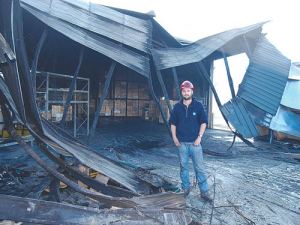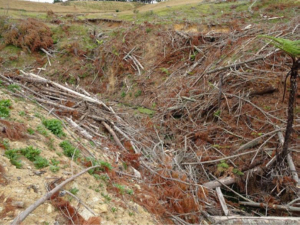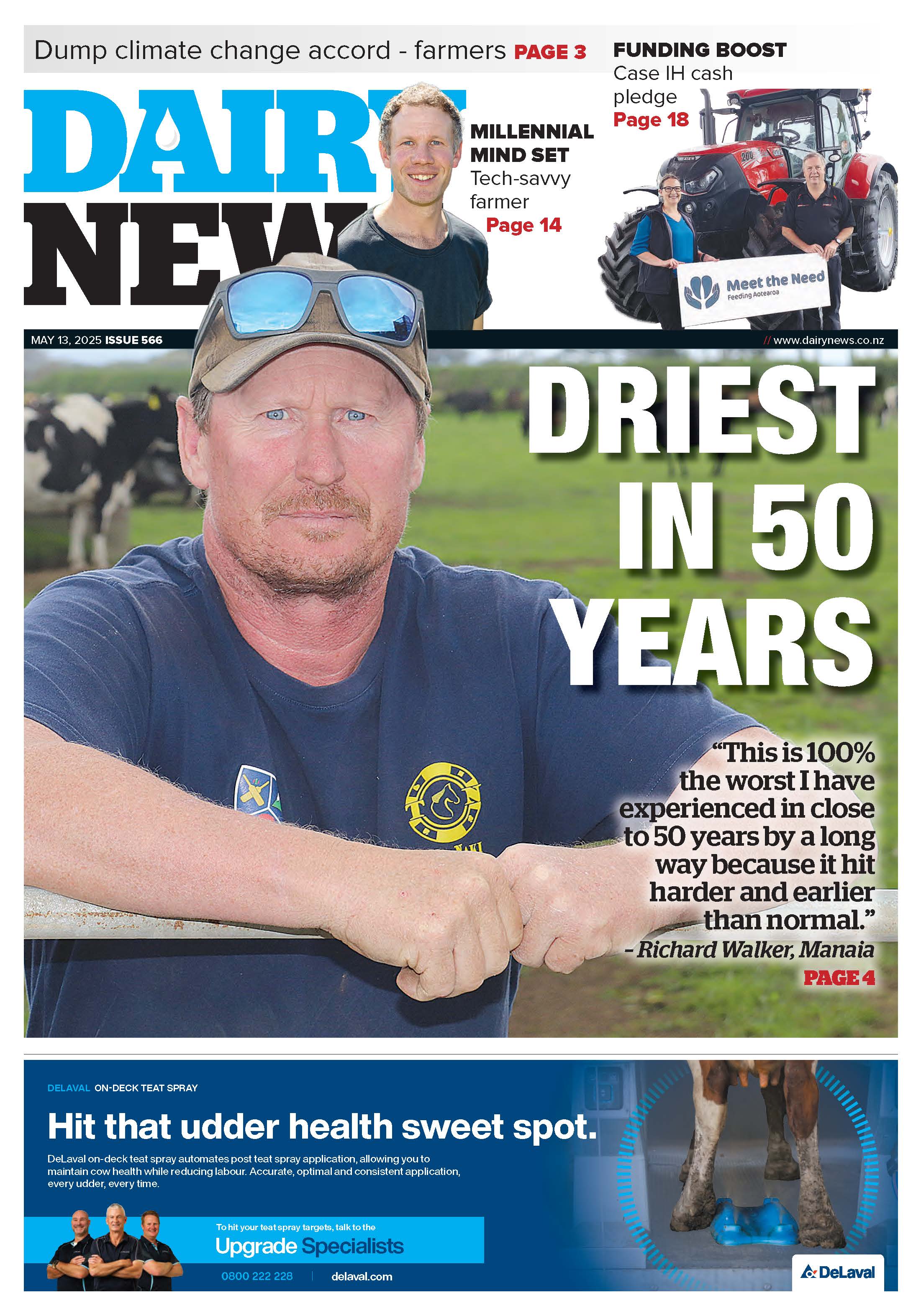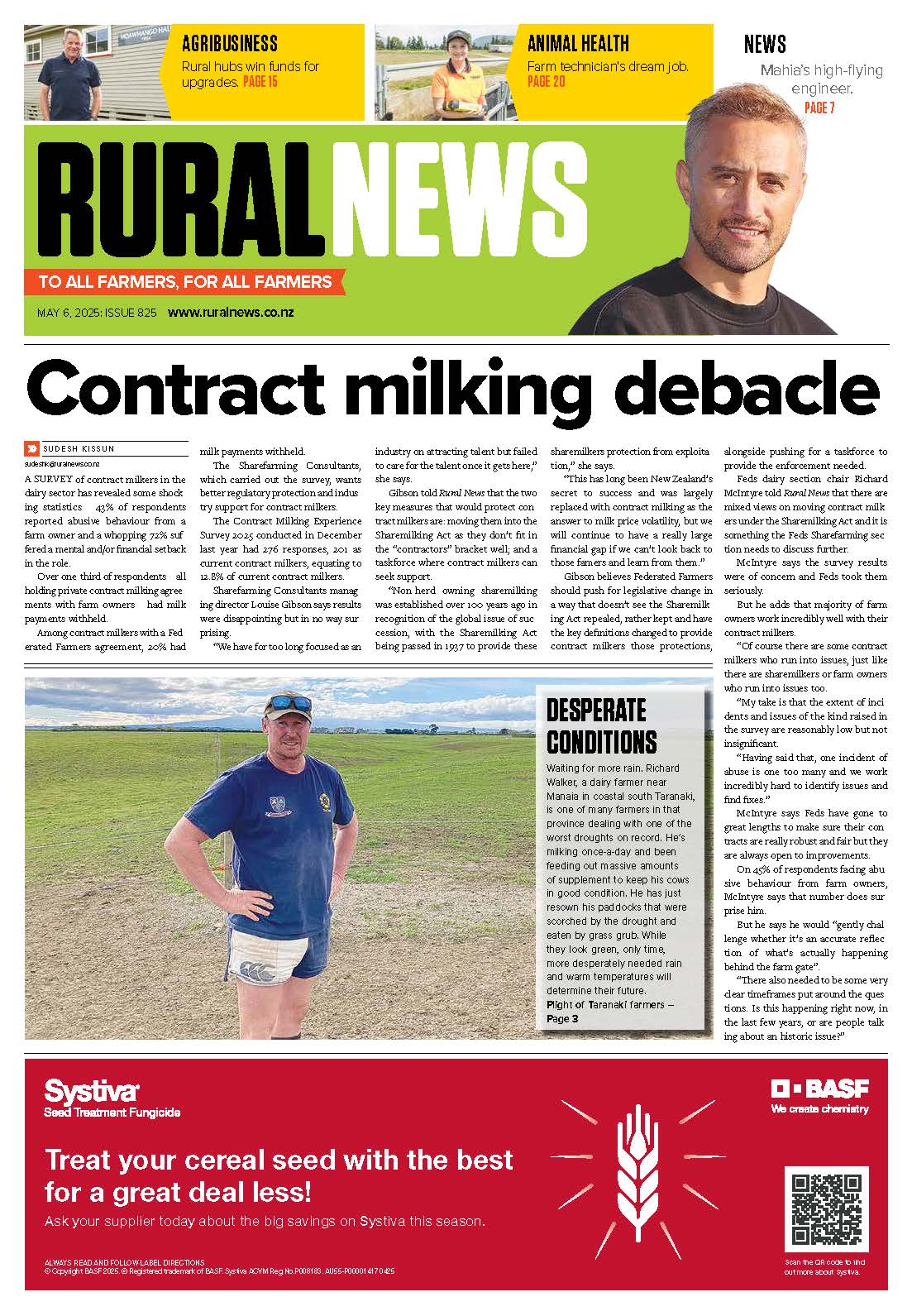James Malcolm’s Natural New Zealand Honey factory at Okuku, near Rangiora, has been badly damaged in a fire which broke out about lunchtime on May 23. Fuelled by melting beeswax and paraffin, plastic and wooden honey frames and wooden honey boxes, the inferno took firefighters well into the night to control.
One end of the main building is destroyed and smoke and water damage permeates the rest.
Malcolm, aged in his 20s, has built the operation for 10 years; he ironically describes the disaster as “the icing on the cake” of his worst season ever because of a poor summer.
He says the fire started in a paraffin dipper used to treat and disinfect wooden honey frames by coating them in molten paraffin wax.
“For whatever reason a spark has come out of it, or something, [causing] wood and paraffin wax beside it on a pallet to catch fire.”
It happened when the five staff then on site were away at lunch.
“The fire was away and unstoppable,” says Malcolm. “They grabbed every fire extinguisher they could find onsite and pretty much gave it to it. But though they got it down, it would flare up again.”
The fire is a massive setback, he says, because it destroyed 8500 honey boxes in storage for the winter, each one filled with plastic or wooden honey frames, and even those frames not burned had lost the beeswax combs, which melted away.
Though insurance should cover new boxes and frames, the bees themselves will have to replace the combs.
“The bees have to eat 7kg of honey to make 1kg of beeswax. So you can imagine for every box that’s brand new in the field, we’re going to be back 7kg.
The bees have to eat that so our honey production for the next couple of years is going to be between 20% and 40% down regardless of how big the crop is, because all the honey is going to be in foundation.”
Malcolm says the young business had just turned a corner after years of building up its plant and equipment.
“Now we have to start again. That equates to the best part of 65 tonnes of honey that’s going to have to be consumed by the bees – meaning there will be no income – for them to draw out and make all that wax.”
Media reports said incorrectly that Malcolm had lost thousands of bees in the fire. Populated hives are brought back to winter on farms in the Okuku area, but not in the shed itself.
Two days after the fire the site was a hive of activity, albeit not the hive Malcolm would have wanted.
Diggers and forklifts were clearing out the site and an electrician was restoring power for the pumps and for the queen bee breeding shed, which stands a few metres separate from the main shed and is undamaged.
Smoke still swirled around, however, with damaged frames being burned in a nearby fire pit to prevent them attracting the bees.
“We have to burn all the frames to get rid of them or the bees will just hang around,” says Malcolm.
“Anything that looks like it might be salvageable is covered in fire-retardant foam and powder, and toxic smoke. They’re food-grade boxes so you’ve got to be careful what you do with them.”
Malcolm says he has “a couple of strategies” to speed the recovery, such as feeding more sugar in spring, but it will all cost money.

















